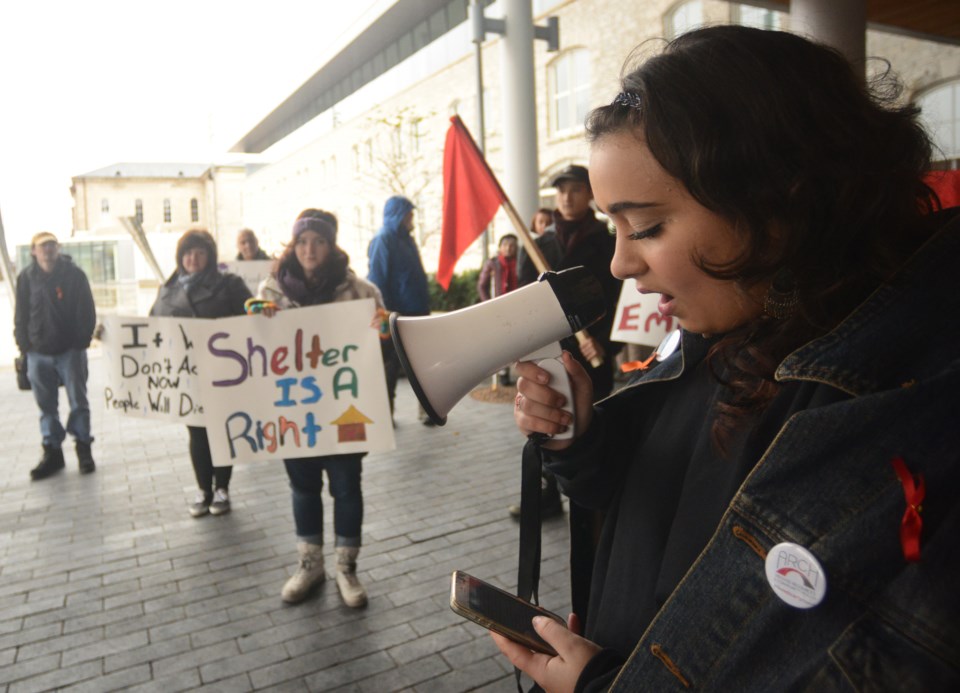The pandemic has proved that eliminating poverty is possible, say those fighting the issue on the front lines.
Two years into the pandemic, the country has already seen how quickly the federal and provincial governments can jump in to help.
With the provincial election approaching, changes must be made to address the pressing concerns that existed long before the pandemic began, said Dominica McPherson, director of the Guelph & Wellington Task Force for Poverty Elimination, at the Informed Democracy Series #1: Homelessness and Poverty in our Community event Wednesday.
The event was hosted by the Guelph/Wellington Coalition for Social Justice, one of several planned to inform and voters on issues of social justice.
“Eliminating poverty is a matter of political will. Resourcing budgets are about priorities and elected officials who can be held accountable. The constituency is who makes those decisions,” said McPherson, one of the four panelists. "I think it's important to make the case why big change to eliminate poverty issues isn't just the right thing to do. It's possible and the pandemic has given us some concrete examples of why this is the case."
McPherson advocated for increased social assistance, affordable housing, living wages with fair work conditions, affordable childcare, and significant investment in mental health and addiction support, among many others.
“In times of crisis, it's critical that we meet people's emergency needs, but we need to also have issues that persist the same sense of urgency for root cause solutions. And the pandemic by increasing people's awareness of the disparities in our system has created a new sense of urgency and a new capacity to imagine a different system,” said McPherson, also pointing out that those who fall through the gaps are primarily women, racialized people, Indigenous people, newcomers and people with disabilities.
Gail Hoekstra, executive director of Stepping Stone, spoke about the pressing urgency of housing and health stability. She said it is not just about having four walls around an individual but creating a path toward health, stability, and well-being.
“If you don't have that, the risk is coming back into homelessness because your housing is not stable and falls apart, so we really wanted to think of that entire continuum and kind of target all of our resources towards that,” said Hoekstra.
Kate Nixon, the organizer of Your Downtown Guelph Friends, a youth group that helps people on the streets of Guelph through various initiatives such as meal programs, said the corrupting element which plagues anti-poverty efforts is a result of the way the political systems look at poverty.
“The way the system looks at poverty is sort of like basing you deserving help based on where you progress in life and based on merit. This comes in the form of means-testing and rejecting help to those dependent on substances, those who might be under the influence while accessing service,” said Nixon.
McPherson also acknowledged the bravery of existing elected officials who “put their necks on the line on multiple occasions.”
She said people could engage in these issues in various ways, such as having a conversation with someone, writing a letter to an elected official or the editor of a news organization.
“Sometimes policy and policy change can feel very big. It can feel outside of our grasp, but I think one of the biggest things to remember is that our government systems are meant to be representative of what people on the ground want to see,” said McPherson.
"Poverty is exhausting, and it makes people sick. When people have the money they need to make ends meet and thrive in their community, they're happier, healthier, less likely to be criminalized, and less likely to use costly emergency services. Investing in and prioritizing human dignity is an investment not just in people living on low incomes but in our entire communities' well-being."
